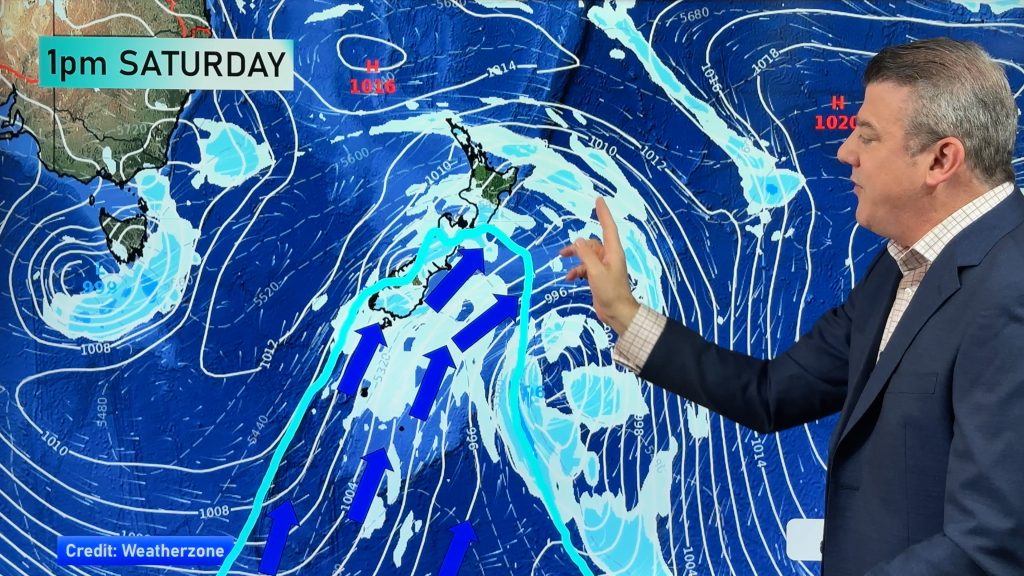
> From the WeatherWatch archives
A leading British newspaper claims the United Nations body on climate change has made a blunder of Himalayan proportions over key evidence on global warming.
The Sunday Times says a key finding on melting glaciers by the Intergovernmental Panel on Climate Change may have been simply taken from a press interview with an obscure Indian scientist.
Latest reports say the finding that climate change will melt most of the Himalayan glaciers by 2035 is now likely to be retracted due to the blunder.
The incident is an embarrassment for the Intergovernmental Panel on Climate Change, which issued a report two years ago that was meant to house the latest and most detailed research into global warming.
“A central claim was that the world’s glaciers were melting so fast that those in the Himalayas could vanish by 2035,” says a report in the Sunday Times, London.
“In the past few days the scientists behind the warning have admitted that it was based on a news story in the New Scientist, a popular science journal, published eight years before the IPCC’s 2007 report.
It has also emerged that the New Scientist report was itself based on a short telephone interview with Syed Hasnain, a little-known Indian scientist then based at Jawaharlal Nehru University in Delhi.”
The Sunday Times says Hasnain has since admitted that the claim was “speculation” and was not supported by any formal research.
“If confirmed it would be one of the most serious failures yet seen in climate research.”
The story has immediately made international headlines.
The Australian newspaper claims, “United Nation’s blunder on glaciers exposed”.
The Hindustan Times says the evidence is now likely to be dropped from the IPCC report and that Dr Hasnain can no longer be contacted.
The story came to light when the journalist who briefly interviewed Dr Hasnain for the New Scientist told the Sunday Times about it.
The story comes at a bad time in the debate over climate change.
Public confidence in climate science was dented last year by the East Anglia emails showing scientists appearing to fudge data and seeking to avoid freedom of information requests from their detractors.
Almost all governments accept the findings of a UN report, which concluded in 2007 that warming of the climate was “unequivocal” and it was more than 90 per cent likely it was being caused by human actions.
– NZ HERALD STAFF
Comments
Before you add a new comment, take note this story was published on 18 Jan 2010.






Add new comment
Gus on 19/01/2010 7:46am
Lets not also forget that the reason the pacific islanders are moving to NZ is that their islands are now under water (Al Gore – An Inconvenient truth) only, they moved here in the 60’s and the islands are not under water.
In the battle to prove why they need to have power, and your money, the first victim is truth, usually by telling a very convenient lie. The IPCC is not staffed by Climate scientists, but politically appointed people. There are only 5-6 hundred qualified climate scientists in the entire world, yet a cast of thousands on the IPCC.
There are many factors that the IPCC has ruled as irrelevant, such as the changes in the earth’s magnetic field, Water Vapour, and Cloud reflection, for which the science is being done, but ignored, unless it fits their conclusion, fortunately magnetic anomalies need to be researched as they affect shipping, so the link between cosmic rays, magnetic fields and cloud formations is being researched, but without the funding provided for research into the effects of global warming on the sexual behaviour of bees. A VERY SAD SITUATION (IMHO)
Reply
Ken Ring on 19/01/2010 12:58am
Just for fun, I tried a little exercise. I googled “receding glaciers in the world”: Results: 141,000
Then I googled “advancing glaciers in the world: Results: 1,110,000
Not very scientific, but it sure tells you that 7 times more people are talking about the advancing ones. So which is it that global warming is causing, the receding or the advancing? And how does global warming decide?
Ken Ring
Reply
Guest on 18/01/2010 8:10pm
‘….glaciers were melting so fast that those in the Himalayas could vanish by 2035..’
What’s worrying is this latest round of media spin to deny change!
Further afield – it’s a cert there will probably be no ice cap on Mt Kilimanjaro by 2035
Reply